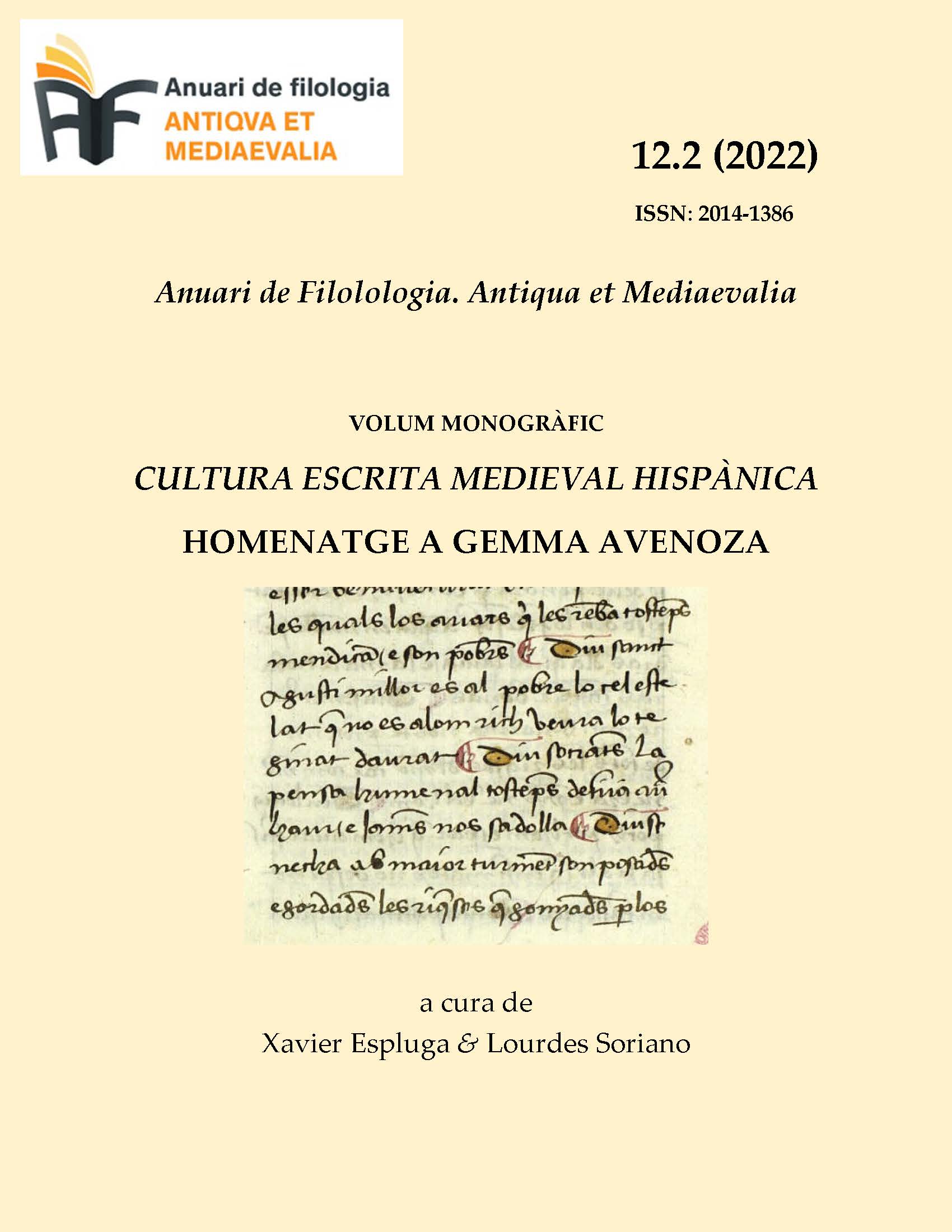Un fragmento de Montserrat de la traducción catalana de la "Legenda Aurea"
Article Sidebar

Main Article Content
The Catalan translation of the Legenda aurea is a very early proof (13th century) of the extraordinary diffusion of Voragine’s work, not only in Latin, but also in the vernaculars. The Catalan translation has come down to us copied in five manuscripts, which have been grouped into two branches of transmission, of what should have been one of the first versions of the Legenda in a Romance language, and it is linked to an early Occitan translation. Some fragments have survived, and arewitnesses of the complex dissemination of a work of mobile archetype, in continuous transformation already during author’s lifetime. The main aim of this paper is the study and edition of one of these membra disiecta, the fragment catalogued in the library of the monastery of Montserrat with shelfmark 1152 (IV). It is a folio dating from the 14th century that transmits the chapter dedicated to the twin saints Gervasius and Protasius, in addition to the last lines of the life of Saint Marina and the first part of the chapter commemorating the birth of Saint John the Baptist. The collatio allows to establish the relationship of this fragmentary witness with the other manuscripts that transmit the Catalan translation of the Legenda aurea and, furthermore, it shows a surprising connection with the Occitan translation.
Article Details
(c) Anuari de Filologia. Antiqua et Mediaeualia, 2022
Derechos de autor
El/la autor/a que publica en esta revista está de acuerdo con los términos siguientes:
a. El/la autor/a conserva los derechos de autoría y otorga a la revista el derecho de primera publicación de la obra
b. Los textos se difundirán con la licencia de reconocimiento de Creative Commons que permite compartir la obra con terceros, siempre que éstos reconozcan su autoría, su publicación inicial en esta revista y las condiciones de la licencia.
Tasas por envios y publicación: AFAM no cobra tasas por envios de trabajos, ni cuotas por la publicación de sus artículos.